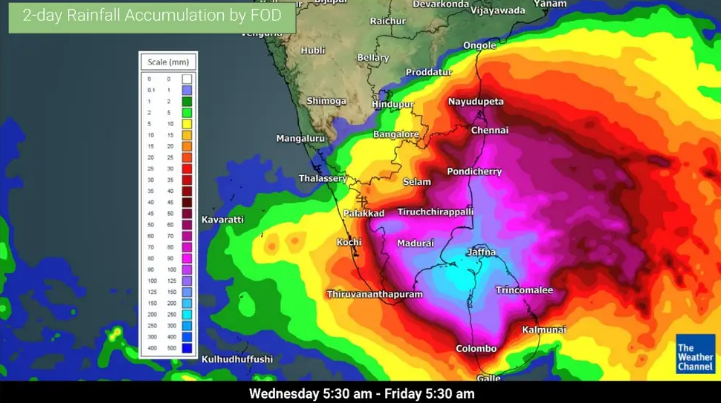
Immunity Against #COVID19 Post Recovery May Last for At Least 8 Months, Suggests New Study
weather.com/en-IN/india/co…
(📸: Xinhua/Evgeny Sinitsyn/IANS)
By @MrigDixit
weather.com/en-IN/india/co…
(📸: Xinhua/Evgeny Sinitsyn/IANS)
By @MrigDixit

There has been constant speculation on just how long these antibodies and the overall immunity against #COVID19 lasts in the human system.
The clouds of mystery pertaining to this particular question continue to govern scientists, virologists, and researchers.
#COVID19 #coronavirus
#COVID19 #coronavirus
Thus far, several studies have suggested that the antibodies against the infection may wane in just a few months after recovery, thereby raising concerns of contracting the infection more than once.
#COVID19 #coronavirus
#COVID19 #coronavirus
Now, a team of scientists from the Monash University in Australia has given the world a Christmas gift through their new study, which has indicated that immunity against COVID-19 can last for at least eight months.
The research is all the more significant at the moment, when #vaccines are still in their rollout phases.
#COVID19 #coronavirus
#COVID19 #coronavirus
Examining Memory B cells
The new study specifically took into account a type of cells in our immune system known as the memory B cells or MBC.
#COVID19 #coronavirus
The new study specifically took into account a type of cells in our immune system known as the memory B cells or MBC.
#COVID19 #coronavirus
These cells function to remember any infection that the human body contracts after being invaded by a pathogen, say virus.
#COVID19 #coronavirus
#COVID19 #coronavirus
Therefore, if an individual contracts the virus again, MBC functions to trigger a protective immune response through its memory, and thus shields an individual from re-infection.
#COVID19 #coronavirus
#COVID19 #coronavirus
To understand the presence of memory cells, the team chased two main components of the SARS-CoV-2 virus—the spike and the nucleocapsid proteins.
#COVID19 #coronavirus
#COVID19 #coronavirus
The study noted that the memory B cells were rapidly generated in all the patients following the infection, and remained detectable after 240 days. This very extended presence of the memory cells showcases a long-term immune response to #COVID19.
It also highlights the fact that a patient’s immune system has the ability to fight when re-exposed to the pathogen by the rapid production of antibodies.
Interestingly, the study also ascertained that even after months of virus spread, during which millions of positive infections have been found, there have not been many reported cases of re-infections among the population across the globe.
A similar study was recently published in the journal Emerging Infectious Diseases, which also confirmed the presence of antibodies against SARS-CoV-2 after 8 months of infection in most asymptomatic or mildly symptomatic patients.
#COVID19 #coronavirus
#COVID19 #coronavirus
Antibodies start to fade in 20 days
When attacked by a pathogen, our immune system produces proteins called antibodies in order to fight the infection. If the infected person can produce sufficient antibodies, he can recover from the disease caused by that pathogen.
When attacked by a pathogen, our immune system produces proteins called antibodies in order to fight the infection. If the infected person can produce sufficient antibodies, he can recover from the disease caused by that pathogen.
To examine how long these antibodies last in case of COVID-19, researchers monitored about 25 people diagnosed with different severities of the disease, and then collected post-infection blood samples from them—starting from day 4 to day 242 after recovery.
On the other hand, they also obtained data from 36 healthy control patients between March to September, so as to compare each patient's antibody presence and levels of virus-specific immune cells.
#COVID19 #coronavirus
#COVID19 #coronavirus
After examining this long period data, the researchers noted that the antibodies against COVID-19—especially immunoglobulin (IgG), which is the most common antibody in the human body—started to fade in just 20 days post-infection, just like the previous studies had suggested.
Earlier, a similar research conducted by the Chongqing Medical University in China had also suggested that people who have recovered from COVID-19 showcased a sharp decline of up to 90% in their Immunoglobulin (IgG) antibodies within the time frame of 2-3 months.
• • •
Missing some Tweet in this thread? You can try to
force a refresh










